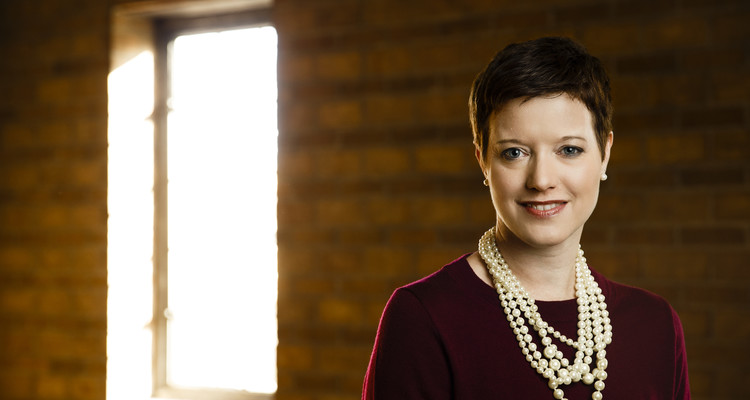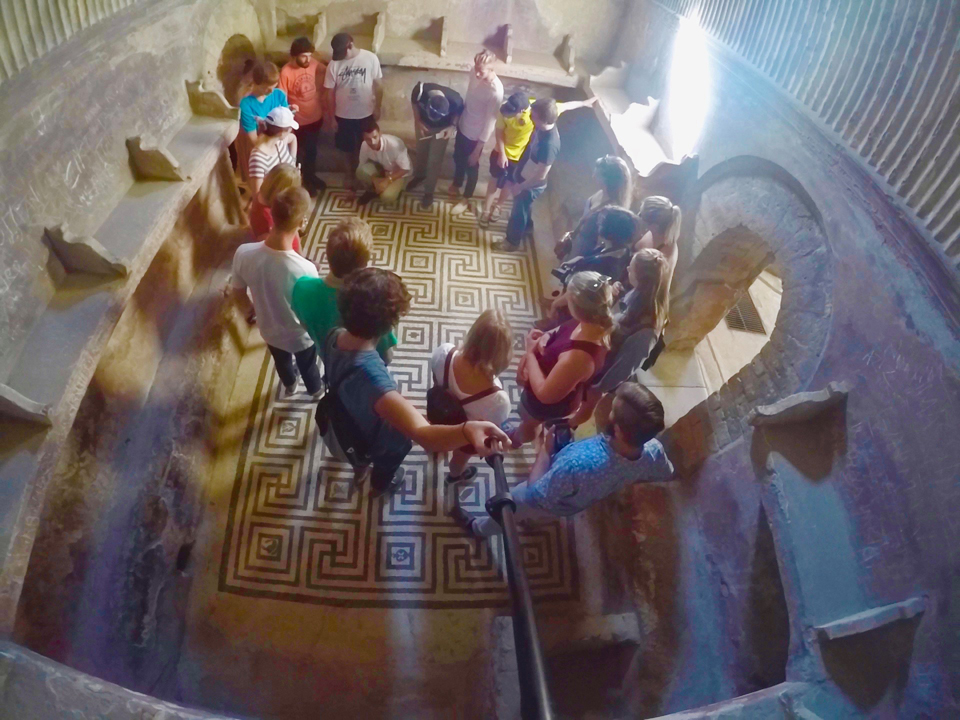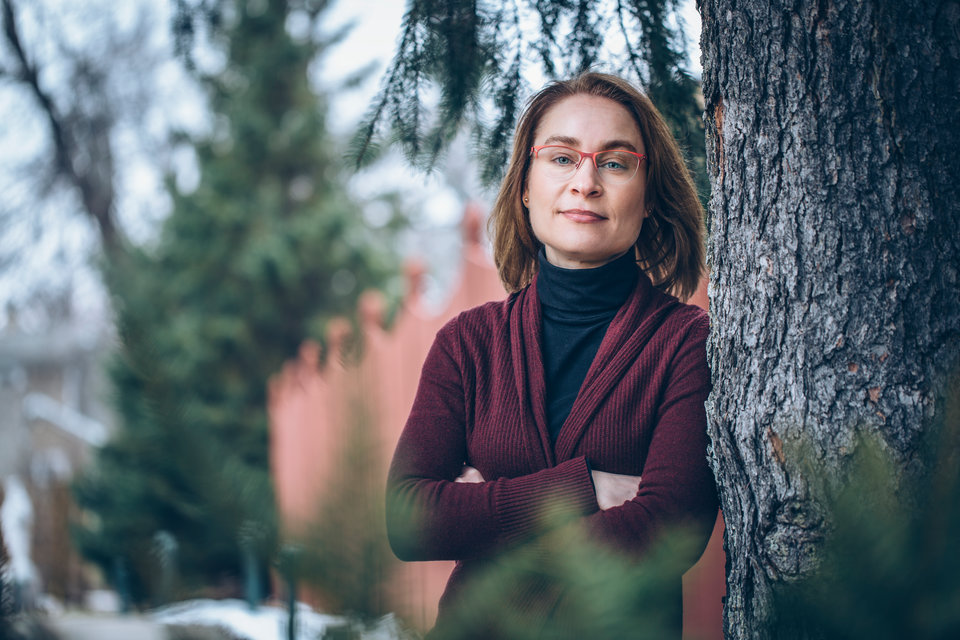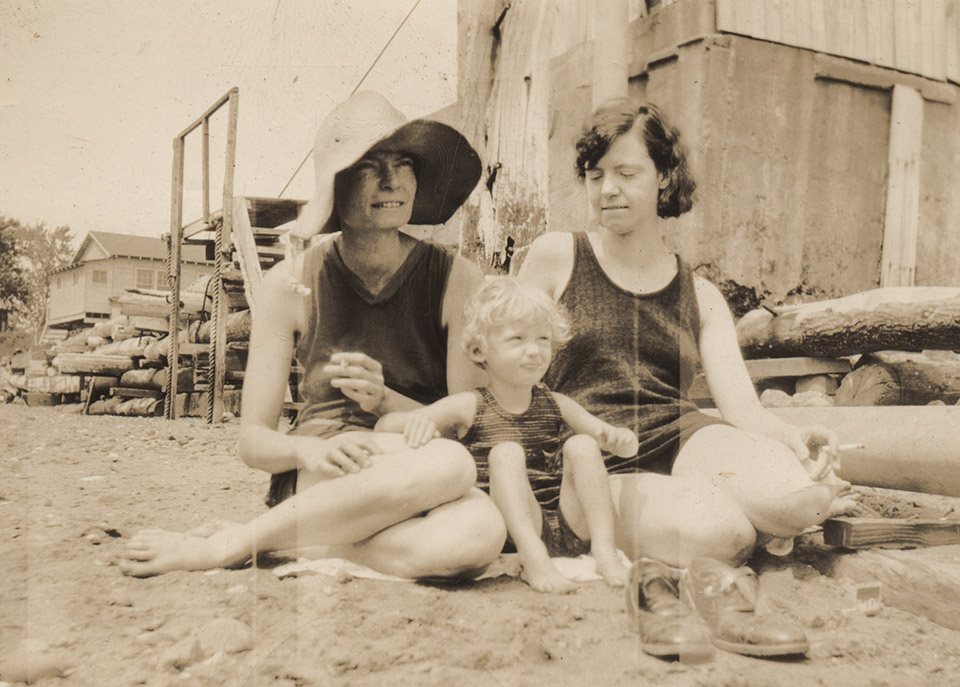Kelly Larmon received her undergraduate degree in psychology in 1997 (back in its Foley Theater days). Her psychology professors included several of the current faculty, and she was even Psychology Club president. After her undergraduate career, Larmon returned to St. Thomas to earn a Master of Business Administration in 2003, and continued on to Hamline University School of Law, earning her J.D. in 2006. I sat down with her recently to discuss her experiences, and we ended up reminiscing and talking about the value of a liberal arts education, getting involved and seizing opportunities.
You’ve gone from a double major in psychology and Spanish, to a graduate degree in business and, finally, to a law degree. If you had it to do all over again, would you start with the liberal arts? How has it helped you?
Oh, yes. In essence, the liberal arts were the building block, the base, for all of my future endeavors. My liberal arts education exposed me to new ideas, areas of study and of course critical thinking. It taught me how to see issues and ideas in a different way ... from a different perspective. Not only did this help me in my business classes in graduate school, but as a lawyer, this has been very helpful for me working with my business partners to better understand their needs and how I can best assist them to get the best outcome.
In addition, I think my liberal arts classes taught me to find connections and similarities between things that might not be immediately apparent. I remember one time being struck by the connections between two courses I was taking that didn’t seem immediately or obviously relatable – psychology and art history – and I was really excited at making that sort of connection! By studying an art movement that was popular at a particular time in history, I could see how the same ideas were influencing the psychological theories at that same time. As I moved along in my undergraduate classes, I loved seeing how very different disciplines actually complemented each other.
Of course being a language major provided me a multitude of opportunities as well. I was able to go abroad for a J-Term in Mexico and go on a VISION volunteer trip to Puerto Rico. To learn and study in great depth about a culture different from my own during my undergraduate career was priceless. Not only did I learn how to communicate with others, but I learned how to listen – a skill I definitely use every day. These experiences also taught me a lot about myself and my place and responsibility in the world.
Today, even though my Spanish-speaking skills are a bit rusty, as evidenced by a recent Habitat for Humanity trip to Costa Rica, I still enjoy learning about different cultures and am humbled by all I have yet to experience.
In addition to serving as the vice chair for the CAS Board of Advisers, you have served on the Women Connect Steering Committee at the University of St. Thomas. What is it that makes an education uniquely “St. Thomas?”
One thing I think St. Thomas does very well is involving its students and alumni with opportunities that will make their time and contributions to St. Thomas most rewarding for them. As a student, I felt I was afforded many opportunities here that I wouldn’t have had at any other school. I had leadership opportunities on campus, internships, and great access and involvement from faculty. Once I graduated, I wasn’t involved with St. Thomas at all as I continued with additional education and focusing on my career. Then one fall Saturday at a Tommie football game, a development officer started talking to me and told me about the St. Thomas Women Connect group. The rest is history! Since then, I have been able to be a part of groups on campus I am passionate about and have been afforded the opportunity to give back directly to the students.
Also, there’s a real sense of community here. St. Thomas is a place where students can go to learn in a very collaborative atmosphere. As a student, I felt that the university really cared about my future and wanted me to succeed.
What advice might you give to a first-year student?
Come ready to participate in your education. Take advantage of everything that this fine institution offers you. If you do, you will be ready to face whatever the future holds outside the Arches.
Read more from CAS Spotlight.





